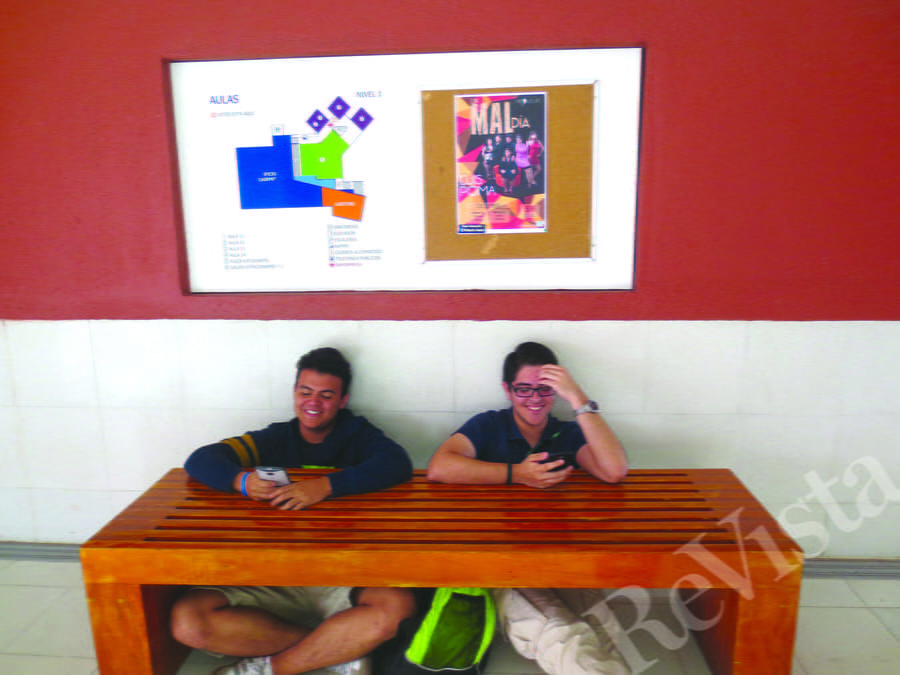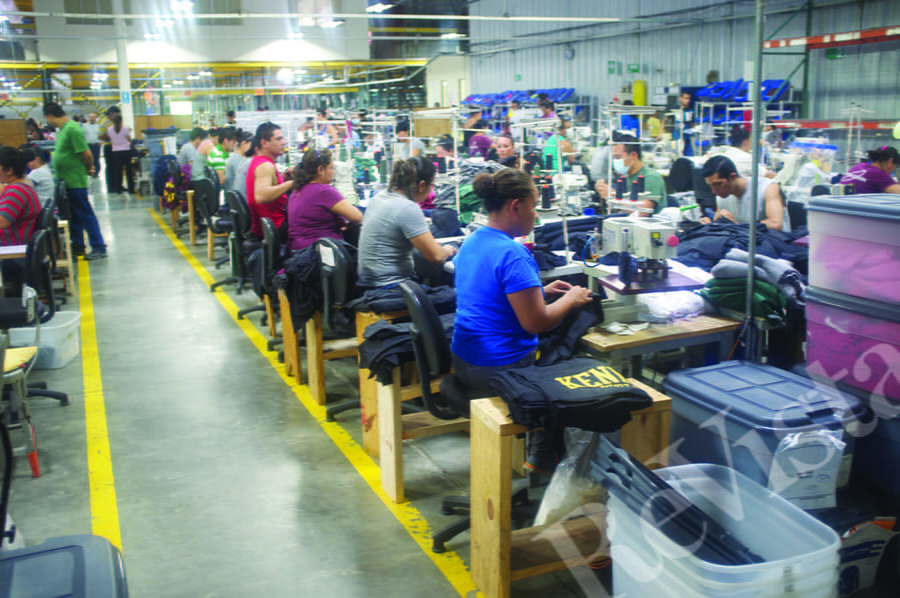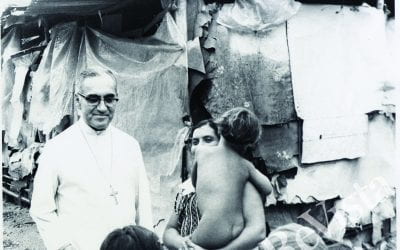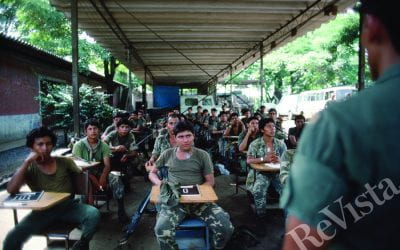Postwar Kids
Pragmatism or Rupture?
It’s not a good time to have great hopes for Salvadoran politics, especially if you are a young Salvadoran. As I write this, in mid-February, the country is still debating the legacy of former President Francisco Flores (1999-2004), who died while under house arrest facing trial under charges of money laundering. At the time of his death in January, we were still learning that most of that money—$15 million that Taiwan allegedly donated for the victims of two earthquakes in 2001—had gone to finance his rightist party, ARENA.
Just a few days after the Flores funeral, the Supreme Court charged another former president, Mauricio Funes, from the leftist FMLN, with illicit enrichment—he was unable to explain a significant increase of income while he was in office. His bank accounts and properties have been frozen and he awaits trial soon.
Yet another former president, Antonio Saca (2004-2009), the last ARENA president, is being investigated and questioned about a million-fold increase in his personal assets during his administration.
Even in a country as politically polarized as El Salvador, the accusations against these presidents raised doubts among the otherwise unconditional supporters of the two main parties that represent the political system’s extreme right and extreme left, ARENA and the FMLN. Both parties grew out of the civil war that devastated the country in the 80s, and both have controlled the political system since the 1992 peace agreement.
For the generation that fought the war, and the one that grew up during it, politics have just become a continuation of that war. In public forums, in Congress and the media, members of both parties constantly quarrel with their political foes and blindly defend their leaders, aware that any damage to their own side means a victory for the other. That’s how politics have been practiced for the last 25 years. But politics have never been so discredited as they are now.
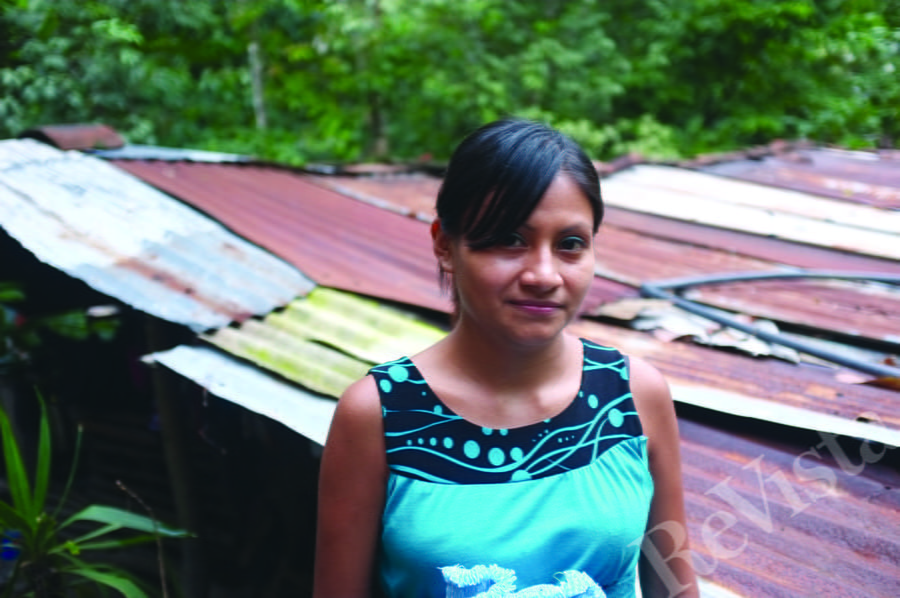
Elsy Melara, 27, has embroidered for big textile companies since her 16th birthday. Her embroideries sell abroad for more than 100 dollars while she gets paid one dollar. Photo by Andreas Jahn/Brücke · Le Pont, www.bruecke-lepont.ch
Enter the postwar generation. Those born during or after the war. Although also divided between left and right, they don’t follow politics or defend their ideology with the same intolerance of those who embraced (or practiced) its more violent expressions in the 80s. The recent presidential scandals proved to them that corruption is not related to ideology. There are no good or bad sides; just good ideas and bad people. And a few good people too.
“The recent corruption scandals affect my faith in the system, of course,” says Aída Betancourt, 26, a lawyer working at the local offices of the World Bank and a very active promoter of her generation’s participation in public life. “It brings me hope. It makes me believe that there are some brave people outside the corruption rings and interests, namely the Supreme Court judges, sending these clear messages to stop corruption.”
It’s been 24 years since the war ended. Enough time for Aída’s generation to grow up and become adults and demand their own spaces. And they are trying. At least some of them.
That is, some of those privileged enough to have an education, access to information, the urgency to change the country and their basic needs satisfied. Middle-class urban postwar kids with a social conscience. Los posts.
“My generation can be defined by the lack of the political fanatism that the previous ones had,” says Juan Martínez, 29, an anthropologist who researches gangs. “You can see guys in ARENA publicly expressing their condemnation of Flores’ actions, but they still declare themselves areneros. It’s the same on the left. The Funesgate is a scandal. But they will remain leftists. Now we have some certainties about what these politicians do. They steal money from the people. We see these indictments as a step ahead, the democratization process is advancing.”
These postwar kids almost speak a different language. They are more tolerant of ideological and sexual diversity, more skeptical about almost everything and curious and better connected with the rest of the world through social media. The guerrilla commanders, army generals or death squad leaders—hailed by my generation as war heroes—mean nothing to los posts.
“Yes, we are still politically divided by the same line that separates left and right,” says Gerardo Calderón, 28, a social activist who brought the TED conferences to San Salvador and volunteered for many years building houses for poor people at an organization called TECHO. “But it would be weird, for example, to see an arenero from my generation hailing Roberto D’Aubuisson, No, we are not fanatics. We are pragmatic.”
D’Aubuisson, an intelligence army officer and leader of the paramilitary death squads that killed, among others, Archbishop Óscar Romero in the 80s, was also the founder of ARENA. He died shortly after the signing of the peace agreements. His supporters still revere him as the man who saved El Salvador from communism, treating him with a devotion usually reserved to founding fathers. Likewise, FMLN supporters and former guerrilla fighters treat those who led the revolutionary movement as unquestionable heroes. That is also changing.
But the posts’ deliberate rupture from the past also caught them by surprise recently, when the Salvadoran police captured four retired army officers accused of killing six Jesuit priests 26 years ago. Thirteen officers, including a former vice-minister of Defense and several high ranking veterans of the war, are still at large. Spain wants to extradite them to face trial for the murders—five of the slain priests were Spanish citizens. These killings prompted the United States in 1989 to cut military aid to El Salvador and thus accelerated the negotiated end of the war.
The arrests, almost a quarter of a century after the killings took place at the campus of the Universidad Centroamericana, set off a political crisis. President Salvador Sánchez Cerén, a former FMLN guerrilla commander, called the leaders of all parties to an emergency meeting and promised them that the amnesty law passed alongside the peace agreement would be respected. Meanwhile, politicians were calling high-ranking officers to calm things down.
“This basically blew up in our faces,” says Aída Betancourt. “It made me realize that we don’t know what happened here.” The Salvadoran educational curriculum has a very small chapter on the war, and it’s basically studied like an ephemeral event. Los posts were never educated about the times when they were born.

Young women learn hairdressing skills in vocational training financed by the Swiss NGO Brücke · Le pont (The Bridge). Photo by Andreas Jahn/Brücke · Le pont, www.bruecke-lepont.ch
That’s a big question for Gumercindo Ventura, 27, a college graduate who works at the family business in downtown San Salvador and admits not knowing much about the war. “I probably know more about European history than Salvadoran, so I don’t feel that part of our history as my own. It’s a past that doesn’t belong to me.”
The lack of classroom discussions about the war is just part of the explanation. Another is the lack of interest of many of los posts. As Martínez, the anthropologist, explains: “We know that there were killings of priests, we know there was a war, we know that the Jesuits were murdered while the guerrillas launched an attack on San Salvador. Yes, we know all that. But why is that important to us? Why should we care? That is an ongoing conflict for the old ones. The war is still at the core of the fights among politicians that we want to break away with. It’s an old conflict. We don’t want to be part of it.”
Their problems are different and urgent. A quarter of Salvadoran youth are Ninis –Ni estudia ni trabaja— they don’t study or work. Of those working, most have either informal or minimum- wage jobs, usually insufficient to cover a family’s needs. They live in the most violent country in the world, with the highest homicide rates of the planet. And most of the dead are young. The Salvadoran economy registers one of the lowest growth rates in the Americas, and around half of the national income comes from remittances and exports from textile assembly plants. Under these conditions, it is not surprising to read the polls: almost 80 percent of Salvadorans want to leave the country. According to a decade-old World Bank study, as much as half of Salvadoran professionals had already left the country by then. Manuel Orozco, a researcher on immigration and remittances at the Inter-American Dialogue in Washington D.C., says that those numbers may still hold, “particularly at a time when at least 30,000 Salvadorans have been moving out of El Salvador every year since 2010. There currently are more than 250,000 Salvadorans in the United States with a tertiary education, many of whom have now expanded their training and skills. Meanwhile in El Salvador less than 20% of the labor force holds skills or a tertiary education.” The problem, of course, is that El Salvador is losing the intellectual and professional force needed to rebuild any society.
“How can you blame them?” asks Gerardo Calderón. “The country is what it is, and we don’t see politicians trying to solve anything. But it’s also our fault. My generation is the freest and better educated than any other. And yet, we are very comfortable living our privileged lives. We are not thinking how to take power or have any nuclear ideas. Our generational identity is to live the privileged lives that most young people in this country can’t.”
Certainly los posts are not protagonists of social movements as their counterparts are in Guatemala, where college students started the protests against corruption that ended last year with the imprisonment of President Otto Pérez. But they’ve had their moments.
Four years ago, a bill, known as Decreto 743, was passed by then President Mauricio Funes. It was designed to censor the decisions of the constitutional wing of the Supreme Court, widely regarded as the most independent branch of government. The bill was introduced by ARENA and voted in by the FMLN. Many young professionals, coordinated through social networks, went to the streets to protest. They were successful. Congress struck down the law.
Los posts could have seen this victory as a generational strength they could use to safeguard the democratic process. But for them it was a one-shot campaign. Nevertheless, los posts are slowly becoming part of the national conversation, although more and more their hopes sound like frustration.
“The more we know,” says Martínez, “the more it all seems hopeless. I think that even more difficult times will come soon. But I think it is our duty to try to decipher our problems and convert our academic knowledge into technological knowledge.” Martínez’ pessimistic views may be influenced by his daily work with gangs. But the numbers of Salvadorans emigrating confirm that it’s a widespread view.

Gay pride march in San Salvador; the sign reads, “Members of Congress, our love doesn’t hurt anyone; your hate does!” Photo by Luis Galdamez, luisgaldamez@gmail.com
A few days ago, I called Gumercindo Ventura, the economist who works at his family business. He answered the phone in Mexico. “I came here to look for a job,” he said. “I am leaving El Salvador as soon as I can.”
Spring 2016, Volume XV, Number 3
Carlos Dada is the founder and editor of El Faro, an online news site based in San Salvador. He is currently teaching a course on journalism and human rights at Yale University, while working on a book about the killing of Archbishop Óscar Romero and the death squads in El Salvador in the 1980s. He was a Cullman Fellow at the New York Public Library 2014-15, a Knight Fellow at Stanford in 2005 and is a member of the Cabot Prizes Board at Columbia University.
Related Articles
The Boy in the Photo
The mangy dogs strolled everywhere along the railroad track. I remembered dogs just like them from the long-ago day in La Chacra in 1979 with Archbishop Óscar Romero, just months before he was killed…
Beyond Polarization in 21st-century El Salvador
My father was a civil engineer who worked for the government during the civil war years. He specialized in roads and had to spend several days a month traveling to remote places in El Salvador. I was 10 in 1986, and I remember my mom asking my dad…
El Salvador: Editor’s Letter
I had forgotten how beautiful El Salvador is. The fragrance of ripening rose apples mixed with the tropical breeze. A mockingbird sang off in the distance. Flowers were everywhere: roses, orchids, sunflowers, bougainvillea and the creamy white izote flower…

